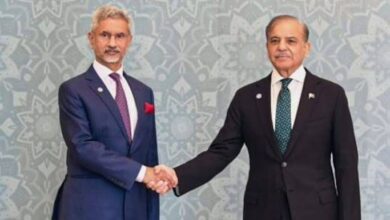UAE Issues New Guidelines for Pakistanis on Visit Visas and Job Seekers, Here’s Detail – Startup Pakistan

As the United Arab Emirates (UAE) remains a popular destination for expatriates, including a significant number of Pakistanis, it is essential to respect the country’s laws and maintain proper conduct. To prevent misunderstandings or legal consequences, Sami Ullah Khan, Community Welfare Attaché at the Pakistan Embassy in Abu Dhabi, has shared critical guidelines that Pakistanis should follow when living in or visiting the UAE.
Respect for Religious and Cultural Sensitivities
One of the key areas to be mindful of in the UAE is the sensitivity surrounding religion. Residents and visitors are advised not to post or share content that is critical of any religion or that may hurt the religious sentiments of others. Vulgar content, as well as anything related to human trafficking or immoral activities, is strictly prohibited on social media. Furthermore, individuals should avoid uploading or sharing content that opposes the policies of other countries or disrespects cultural differences.
Social Media Conduct and Privacy
Social media users must also respect the privacy of others. Sharing personal photos, videos, or any other content without explicit permission is a punishable offense. It is also illegal to post content that reflects hatred, racism, or any material that disturbs societal peace. Additionally, creating fake websites, emails, or accounts impersonating individuals or authorities is considered a crime in the UAE.
Legal Boundaries: Protests, Threats, and Fake News
The UAE’s laws strictly prohibit participation in protests, whether online or in person. Additionally, online threats or hostile behavior against others can lead to legal repercussions. Sharing or spreading rumors, fake news, or any content that undermines the country’s laws, institutions, or people is also forbidden.
Employment and Financial Caution
Individuals visiting the UAE on tourist or visit visas must not engage in any form of employment. Bounced cheques can lead to serious legal complications, and it is highly advised not to sign any blank cheques or papers. Expatriates should exercise caution when handling post-dated cheques, as they can lead to unwanted legal consequences if mishandled.
Respecting Privacy and Local Norms
Taking photographs of sensitive areas or people without consent is illegal in the UAE. It is crucial to respect others’ privacy, and uploading their personal information without permission is prohibited. Expatriates are urged to maintain decorum by avoiding physical fights and obscene gestures, which could result in fines or imprisonment.
Traffic and Driving Laws
Residents are required to strictly follow traffic laws, and non-residents must ensure that they hold a valid international driving license. Violating traffic laws can lead to severe penalties, including hefty fines and possible imprisonment.
Drugs and Medicine Regulations
Narcotics are strictly prohibited in the UAE, and even some medicines containing restricted substances are unlawful. It is recommended that residents and visitors check the list of permissible drugs and medicines before entering the country. The UAE enforces severe penalties for drug-related offenses, including long prison sentences.
Charity and Fundraising Rules
Expatriates should avoid collecting funds for unregistered charities, as it is illegal and could lead to serious legal consequences. Registered charities are the only legal channels for fundraising in the UAE.
Severe Penalties for Serious Crimes
The UAE imposes severe penalties for crimes like robbery, smuggling of narcotics, and terrorism. These crimes carry some of the harshest punishments in the country’s legal system, including life imprisonment or the death penalty in extreme cases.
Conclusion
Sami Ullah Khan has urged Pakistanis to share these important guidelines with friends and relatives who are living in or planning to visit the UAE. By following these rules, expatriates can ensure that they maintain a respectful and law-abiding presence in the country while avoiding unnecessary legal complications.
Source link



